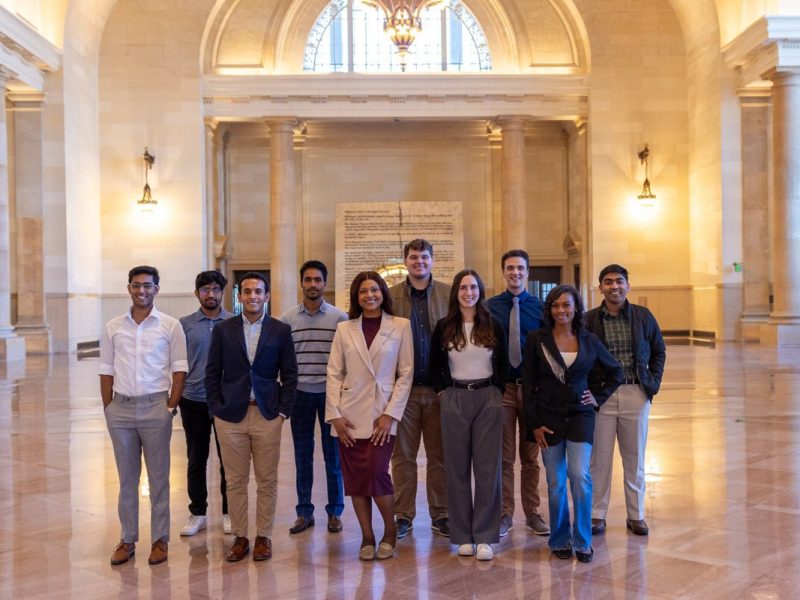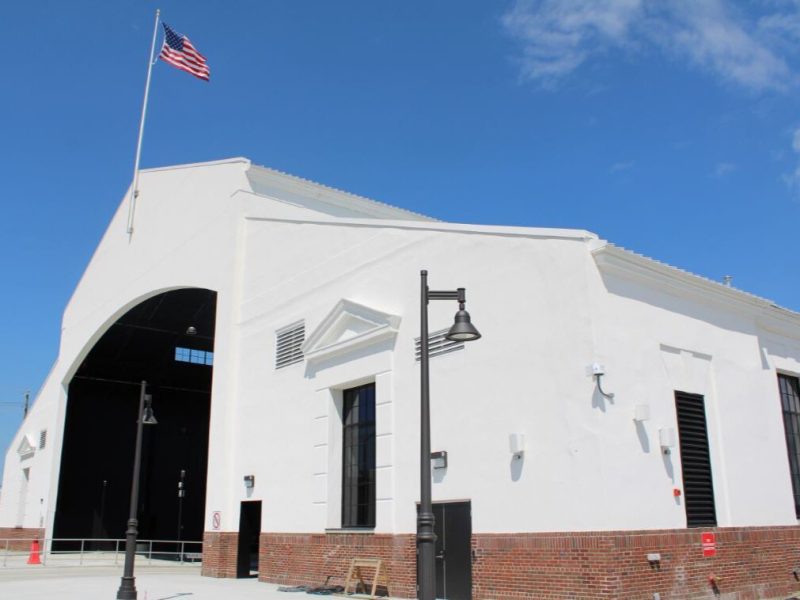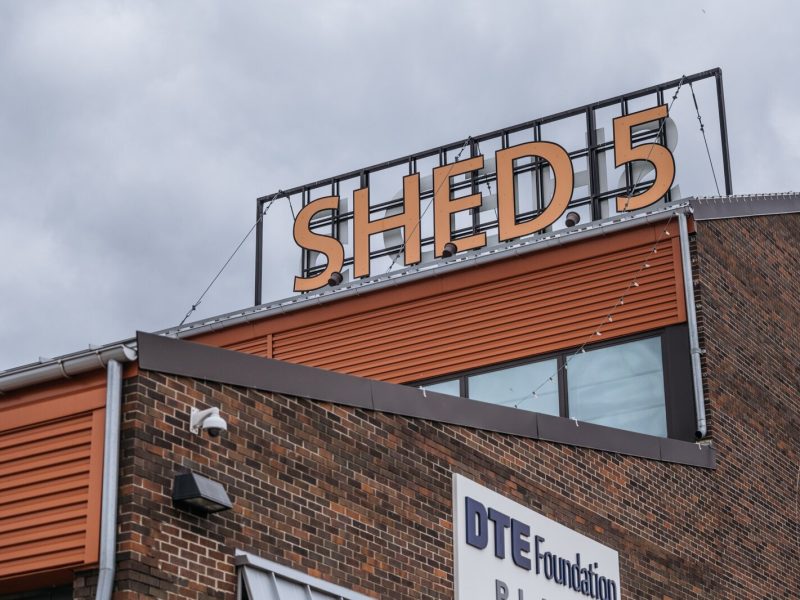The top Metro Detroit development stories to watch in 2021
Adventures in city planning. Reinvigorating our downtowns. Innovations in infrastructure. Here are some developments to keep an eye on in 2021.
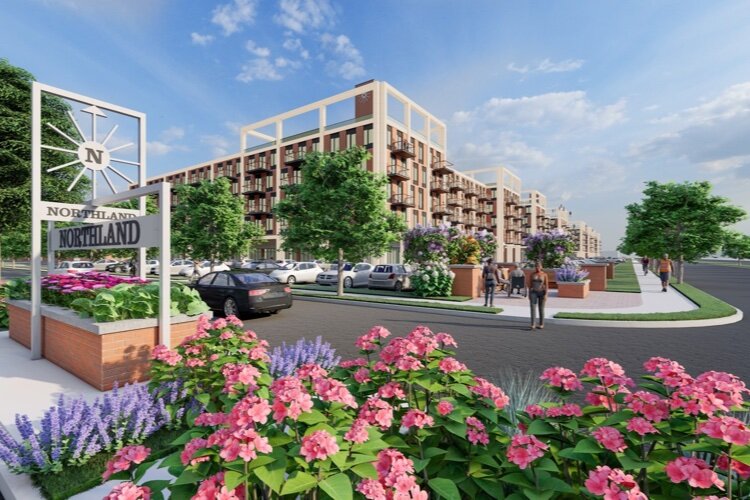
Adventures in city planning. Reinvigorating our downtowns. Innovations in infrastructure. While we keep one eye on COVID-19 and its myriad of effects on our daily lives, 2021 will also welcome a wave of developments that will shape our region’s future long after COVID-19 has been controlled.
Here are some developments to keep an eye on in 2021.
Turning up downtown
One of the most interesting developments to come out of the COVID-19 pandemic — planning-wise — is how our local communities have responded, coming up with new and innovative ways to support our small business communities. These have come in any number of forms, from virtual happy hours to downtown scavenger hunts to fundraising efforts — whatever it takes to keep small businesses in the hearts and minds of our neighbors. So while new developments are still important, so are the ones already here.
An interesting trend to watch in 2021 will be how downtown communities maintain their social districts through the cold winter months and back into spring and, potentially, into a world where we’ve wrested control of the coronavirus and everything is open again. Made possible through an act passed by the State of Michigan, social districts allow our downtowns to set up zones where people can legally enjoy alcoholic drinks outside. Even if you can’t enjoy a beverage indoors, purchase it from your favorite bar and stroll to a designated area to imbibe outdoors and downtown.
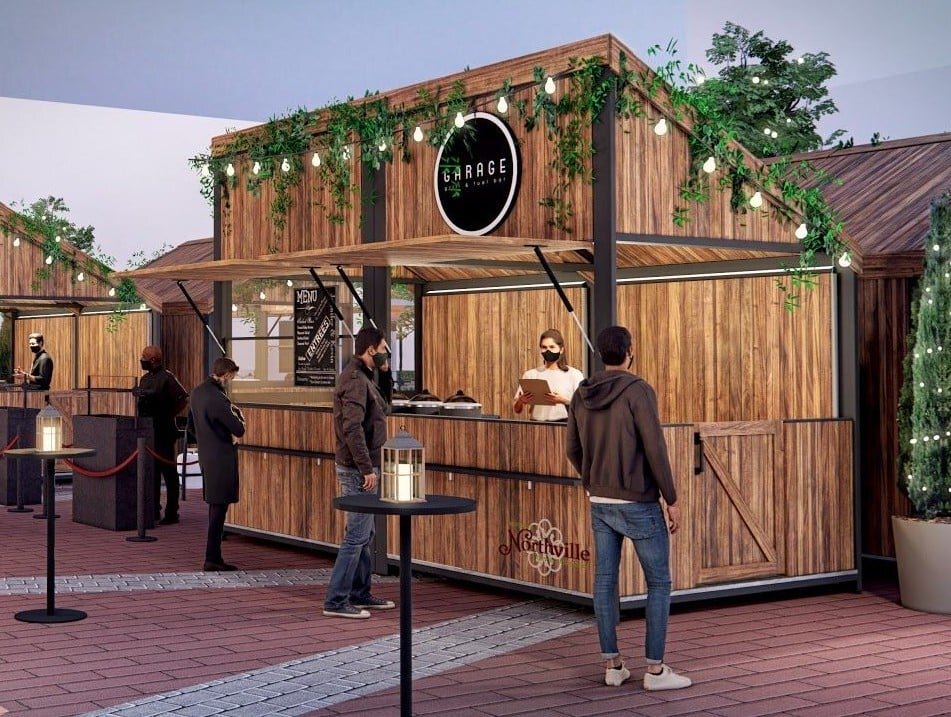
Several Metro Detroit communities have taken advantage of the new law: Belleville, Clarkston, Farmington, Grosse Pointe Park, Lake Orion, and Northville. The question for 2021? How will these outdoor drinking districts enhance our downtowns in 2021, and will they remain well after COVID-19 restrictions are lifted.
Innovations in mobility
What Ford Motor Company is doing with Michigan Central Station in Corktown — transforming the long derelict building into a 21st-century hub for mobility innovations — represents a wave of development coursing through the region that will become even more apparent in 2021. And not just with buildings, although that’s part of it, through our region’s infrastructure, too.
Ford’s project represents a $350 million transformation not just of the historic train station but the 30 acres of Corktown that surrounds it. For Detroit-based Realtor Ryan Cooley of O’Connor Real Estate, which is headquartered in Corktown, 2021 represents a year when the true impact of the project should become more immediately apparent, who told us recently in our story on the city’s housing market, “With Ford and the train station, we will see a lot more activity and construction around here. It doesn’t feel real in some ways without all the people, but that will start to take shape in 2021.”
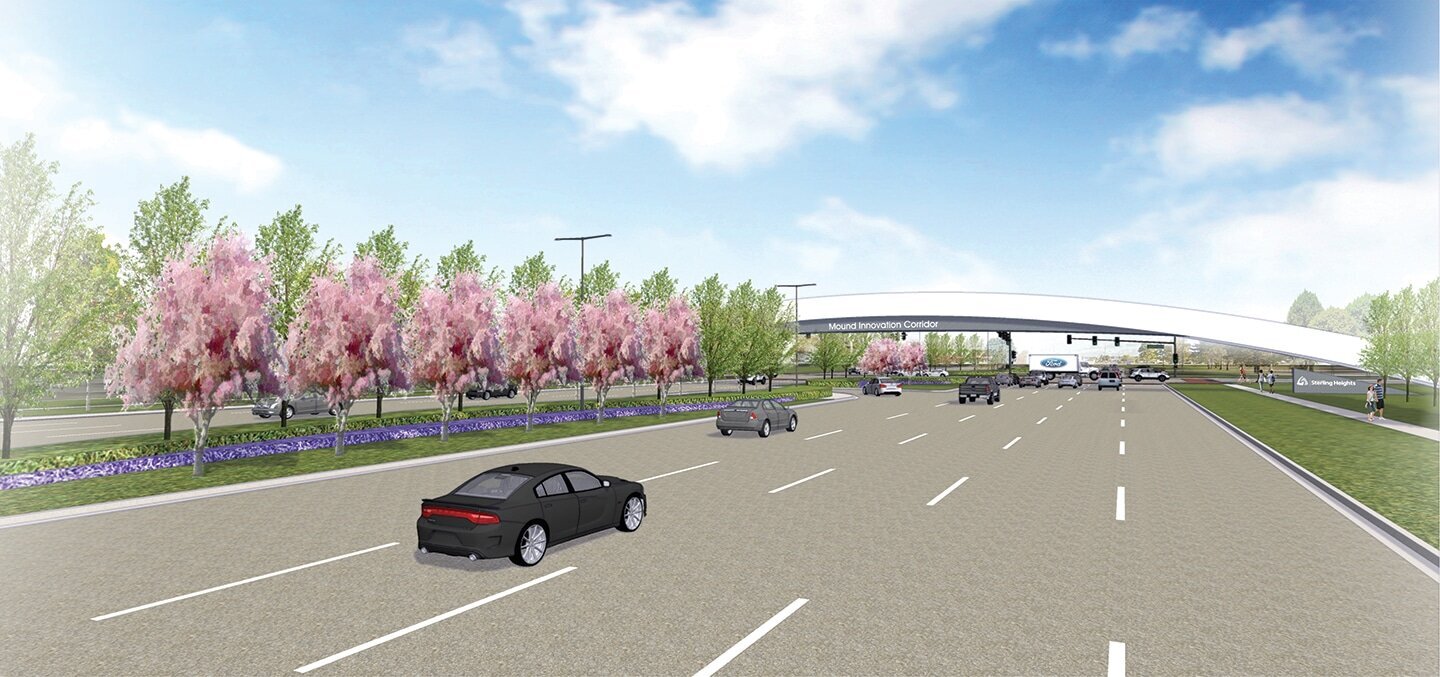
But that’s not the only mobility-related development that will be exciting in 2021. A stretch of Mound Road in Warren and Sterling Heights is becoming a “21st-century multimodal corridor” by way of a $217 million project that will turn Mound into a technology-infused “connected” roadway, paving the way for the autonomous vehicles that are expected to come. Construction could begin as soon as this summer. 2021 could also see more headway made in the recently announced connected and autonomous vehicle corridor between Detroit and Ann Arbor, impacting the communities along Michigan Avenue and I-94.
Developing developments
It’s not often that an inner-ring suburb like Southfield has the chance to redevelop nearly 100 acres, but that’s just the opportunity the old Northland Center site presents. The mall, which closed in 2015, has seen several development proposals pitched since then, and it was announced in November 2020 that the city has finally reached an agreement to sell the 97-acre site to the Bloomfield Hills-based Contour Companies. The sale should become final this month, with demolition and construction expected to begin this spring. The plan? A veritable city-within-a-city with varied housing and retail types that add more than 1,500 residential units in Southfield. Much of the mall will be demolished for new construction, although the old Hudson’s-turned-Macy’s department store will be saved and repurposed as Hudson’s City Market.
Adding density through transformative projects within the city limits can often be a challenge for our more well-established communities; oftentimes, it’s not a lack of will or demand but rather a lack of space. Still, several developments are taking shape in 2021 that are finding new opportunities in established spaces that can invigorate our communities. While they are not as large as the Northland development, they are no less exciting.
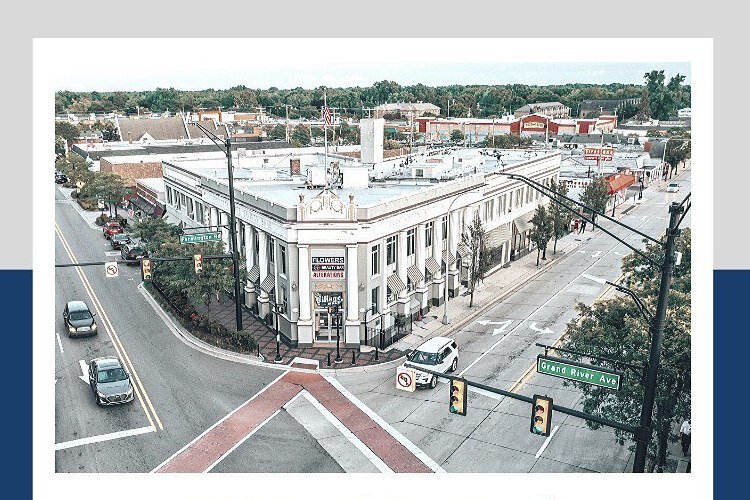
Take downtown Farmington, for example. The old Farmington State Savings Bank building at the intersection of Farmington and Grand River has anchored that downtown for almost 100 years. After years as a bank and then market, the historic building and several of its neighbors were purchased by GLP Financial Group, transforming the old bank into a thoroughly modern headquarters. It’s expected that the project will be finished sometime this year (although COVID-19 has caused its fair share of delays). Eventually, GLP Financial hopes to build more apartments on the site, too.
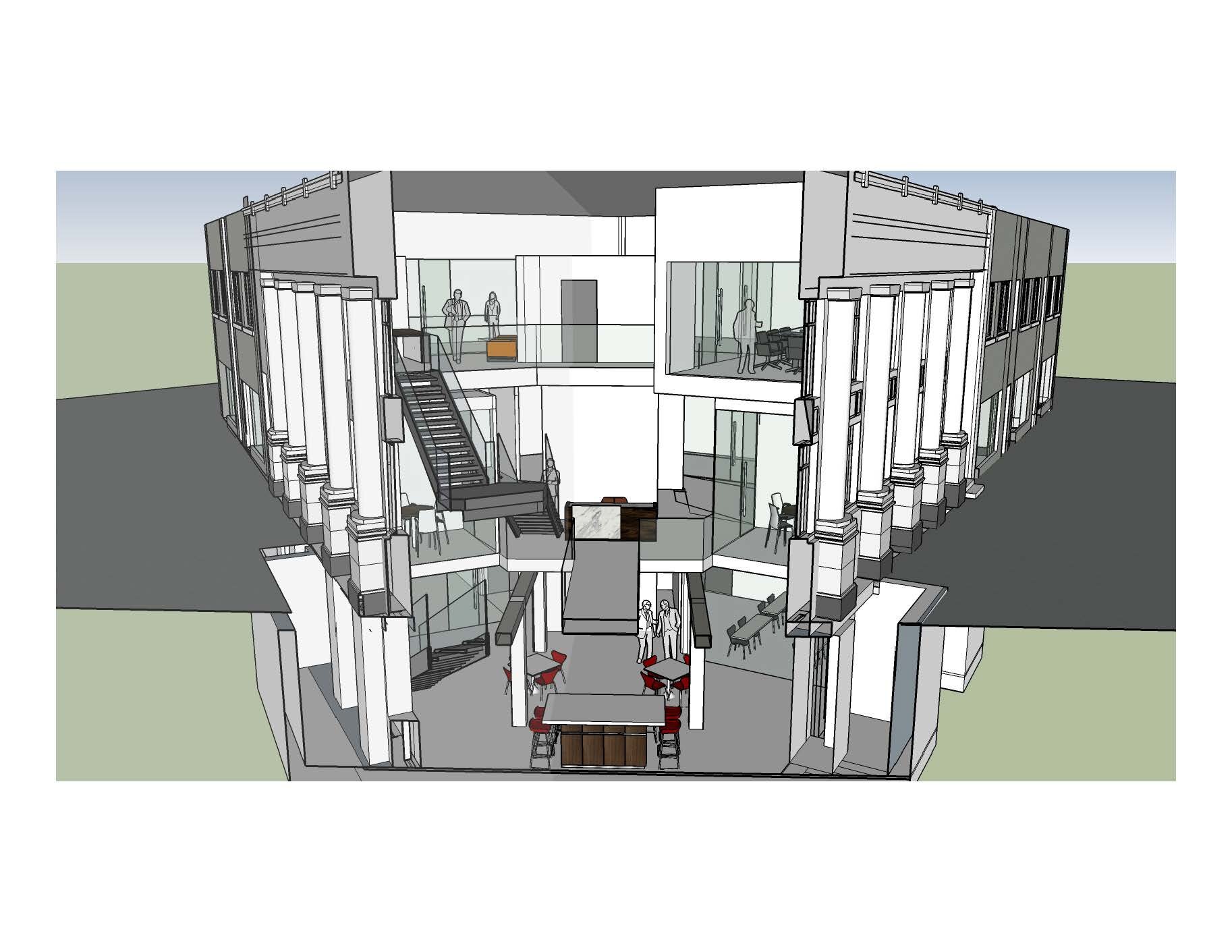
2021 should welcome news of what will happen at the old Maxfield Training Center, located in downtown Farmington. The city is selecting a developer to transform the old school into a residential development, adding more than 100 new residential units downtown. “This is being looked at as a multi-family development,” Kevin Christiansen, the Economic and Community Development Director for the City of Farmington, told us late last year. “We’re looking for high-quality projects that complement downtown and are compatible with adjacent properties and will add to the city’s tax base.”
Meanwhile, in downtown Clawson, the Ace Hardware shopping center will see the addition of high-end residential units atop the building with neighboring retail space renovated, increasing density downtown. And in Hazel Park, 54 three-story townhouses are going up on an old school site, with the homes expected to welcome their first residents by spring or summer of this year.
